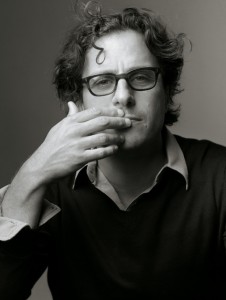I had a real “down the rabbit-hole” moment walking out of the hotel I where I interviewed Davis Guggenheim. All I could think about was how sometimes he needs to go to the store to buy polish for his fucking Oscar.
Originally appeared in The Peak.
Ripped straight from a particu- lar George Clooney film, Davis Guggenheim became success- ful because he got fired. Or so he says.
“I never wanted to be a docu- mentary filmmaker.†The screen- writer and original director of the 2001 Denzel Washington vehicle was thrown off his own project by the marquee star. The bit- terness lead Guggenheim to his true calling. “It was so arbitrary and stupid, so I bought a camera and made a film about people I likeâ€. In the precursor to Waiting for “Supermanâ€, a landmark docu- mentary about the faltering Amer- ican education system, Guggen- heim followed a group of teachers for a year and chronicled their struggles. The 2001 documentary, Teach, was the result, and the first step in what Guggenheim figures will be a long career document- ing education. “I think I’ll be mak- ing movies about education for- ever. Until we fix it.†Guggenheim, whose work became a household name with An Inconvenient Truth, has moved on from the Acad- emy Award-winning business of chronicling the fate of the planet to merely the fate of the United States. “From an American pointof view, it seems like the roots of all our problems come out of edu- cation, the roots of all our great successes come out of education. We are so screwed right now.â€
Imitation is the sincerest form of flattery and Guggenheim feels as if America has a lot to learn from its neighbors. “We read a lot about the system in Finland, Japan, and Korea. Finland is at the top of a lot of lists. What they do right and what we can learn from them is their emphasis on great teachers. It is very hard to get into a teaching program. When you finish, you get a spot. When you get a spot, you get developed and trained. When you’re done, you can get any job you want. In America, that’s the opposite of the case.â€
It’s a labour of love for Guggenheim who sees the quest for better education in America as sacred duty. But it’s not without limitations. “Part of what drives me is emotion. When I feel pas- sionate about a movie is when I want to make a movie. You have to feel deeply about it and you have to care about the people in your movie. But you can’t cross certain lines.†Part of the film fo- cuses on a young girl attending a private charter school, but money for tuition runs out just in time
for her to be barred from attend- ing elementary graduation with her friends. Despite just wanting to pay the bill, Guggenheim exer- cises restraint. “It’s heartbreaking. You’re making the movie to help people but you’re not allowed, out of principle, to help. The hope is the movie will then encourage others to help.â€
Despite the endless debate and hand-wringing over Ameri- can education reform, support behind Waiting for “Superman†is less than universal. “It’s very, very controversial. When I do this in Texas, there are a lot of peo- ple who are very upset because schools have to accept all these immigrants and illegal aliens. It gets more complicated. I hope it doesn’t. My great-grandparents are immigrants. They didn’t have any money and education was this great elevator, it lifted fami- lies up. I think America should commit to giving every kid a great education and not have a lottery to get on the elevator.†Major pro- ponents of the film include Mayor Michael Bloomberg of New York City (steward of the largest public school district in the country) and President Barack Obama, who levied criticism over intractable teacher tenure and the number of school days respectively in the wake of the “Superman†premiere.
Waiting for “Supermanâ€, hav- ing dragged some taboo issues into the open, Guggenheim is quick to state the power of his medium. While others are sheep- ish and coy about pointing fingers at bad teachers and bad policies, Guggenheim is defiant. “If you can’t talk about them in a docu- mentary, where are you going to talk about them?â€
Comments Off on Interview – Davis Guggenheim